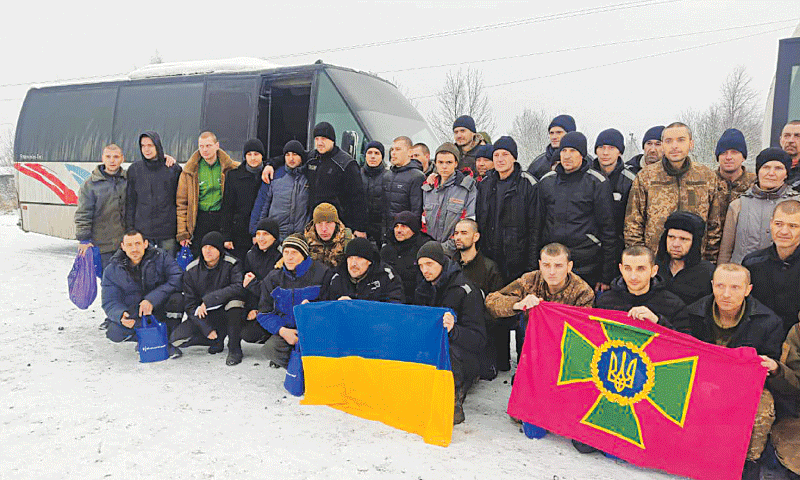
Chris Parry, 28, and Andrew Bagshaw, 47, were undertaking voluntary work in Soledar, in the Donetsk region of Ukraine, when their vehicle was reportedly hit by a shell.
The two were returned to Ukraine authorities as part of a wider exchange, in which Kyiv got 116 prisoners and Russia 63.
“We managed to return the bodies of the dead foreign volunteers,” said President Volodymyr Zelensky’s chief of staff Andriy Yermak, naming them as the two British men.
Bagshaw was a scientific researcher in genetics but had volunteered as an aid worker in Ukraine since last April. His remains are expected to be returned to New Zealand where he and his family lived.
The Parry family said he had previously worked as a software engineer.
Concern had grown about their fates after the head of the Russian mercenary group Wagner, which helped capture Soledar from Ukrainian forces, said on Jan 11 that one of the missing men’s bodies had been found there.
Wagner boss Yevgeny Prigozhin had also published online photographs of passports that appeared to belong to Parry and Bagshaw, which he claimed were found with the corpses.
Evidence of war crimes
Germany has collected evidence of war crimes in Ukraine, the country’s prosecutor general said in a newspaper interview published on Saturday, adding that he saw a need for a judicial process at international level.
“Currently, for example, we are focusing on the mass killings in Bucha or attacks against Ukrainian civilian infrastructure,” Peter Frank told the Welt am Sonntag newspaper. So far, prosecutors have pieces of evidence in the “three-digit range”, he added, without elaborating.
Ukraine and its Western allies have accused Russian forces of committing atrocities in Bucha, a satellite town of Kyiv, soon after launching their invasion last February. Moscow has denied the charge. Russia has also targeted key infrastructure in Ukraine but denies deliberately targeting civilians.
Germany began collecting evidence in March 2022 to prosecute possible war crimes, including by interviewing Ukrainian refugees and evaluating publicly available information, Frank said, adding that German prosecutors were not yet investigating specific individuals.
“We are preparing ourselves for a possible later court case — be it with us in Germany, be it with our foreign partners, be it before an international court,” he added. Asked who should be tried, Frank said Russian state leaders and those implementing decisions at the highest military level should be held accountable.
Ukraine is pushing for the creation of a special tribunal to prosecute Russian military and political leaders it holds responsible for starting the war.
The International Criminal Court has launched its own investigation into alleged crimes against humanity and war crimes days after Moscow’s Feb 24 invasion, but it does not have jurisdiction to prosecute aggression in Ukraine.
European Commission chief Ursula von der Leyen, who is visiting Kyiv, said on Thursday that an international centre for the prosecution of the crime of aggression in Ukraine would be set up in The Hague.
Moscow has rejected allegations by Kyiv and Western nations of war crimes. The Kremlin has said it launched a “special military operation” to protect its own security.